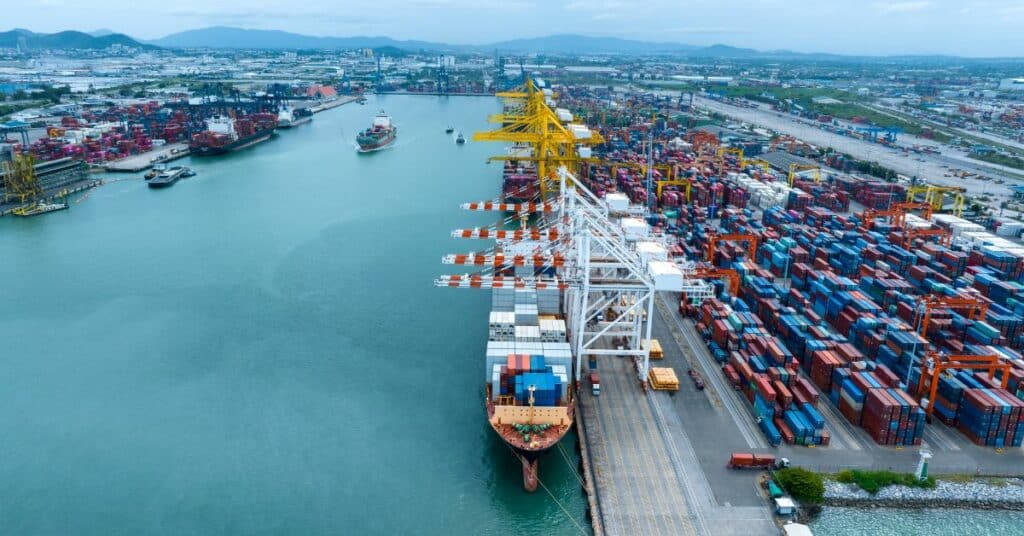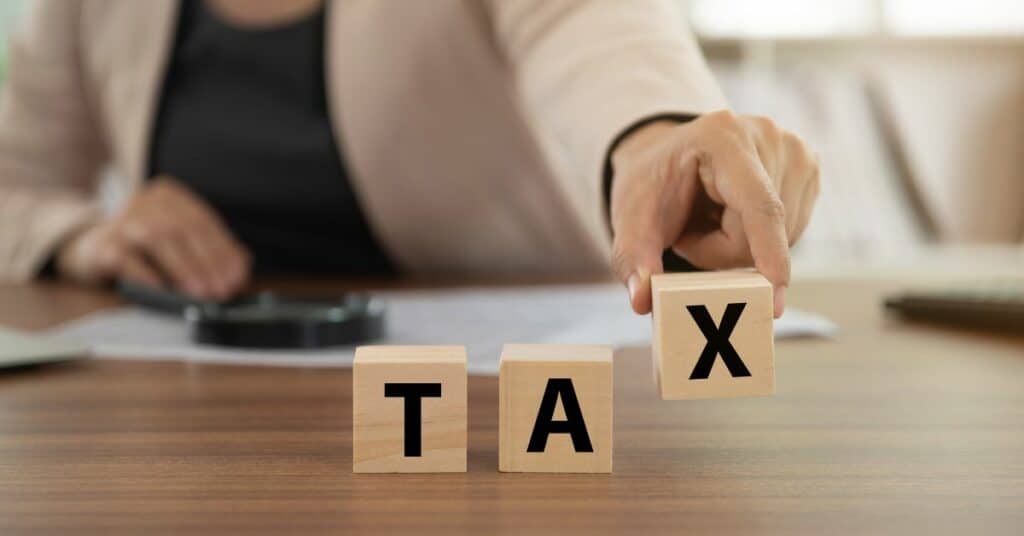Introduction In December 2020, the European Commission published “templates” to help Member States in the design of their plans that were to be financed by the Recovery and Resilience Facility [RRF]. The purpose of the templates was to identify whether those plans contained State aid and, if they did, whether the aid had to be notified or not. Soon afterwards […]
State Aid Law
Blog
State Aid Uncovered Blog
In Lexxion’s State Aid Uncovered blog, Prof. Phedon Nicolaides publishes weekly critical analyses of recent State aid judgments and decisions. Each post presents the key points of a court judgment or EU Commission decision, places it in the context of similar case law or practice, assesses the underlying reasoning and highlights any inconsistencies or contradictions.
Guest contributions from other State aid experts will also be published on the blog at irregular intervals to complement the content of the blog posts.
State Aid Uncovered ×
11. April 2023 |
State Aid Uncovered
by Phedon Nicolaides
4. April 2023 |
State Aid Uncovered
by Phedon Nicolaides
Introduction Member States are allowed to grant state to compensate undertakings for damage they suffer as a result of a natural disaster or exceptional occurrence. But, it is not always easy or possible to disentangle the damage caused by such an unforeseen event from losses caused by mismanagement or changes of market conditions. The art and science of calculating the […]
28. March 2023 |
State Aid Uncovered
by Phedon Nicolaides
Introduction In a Communication that was published on 9 March 2023, the Commission announced extensive amendments to the GBER.[1] A 100-page annex to the Communication provided the legal text of the draft regulation that would revise Regulation 651/2014.[2] The amendments aim to: Ensure consistency between the GBER and new State aid guidelines. Bring the GBER in line with the EU […]
21. March 2023 |
State Aid Uncovered
by Phedon Nicolaides
Introduction As part of the EU’s Green Deal and the transition to a greener and most sustainable economy, the European Commission’s guidelines on State aid for climate, environmental protection and energy [CEEAG] also allow public support for the construction of energy infrastructures. In a recent decision, the Commission approved a German State aid scheme [SA.104749] for high-power charging infrastructure for […]
14. March 2023 |
State Aid Uncovered
by Phedon Nicolaides
Introduction Whenever a bank seeks State aid, it must be considered as “failing or likely to fail”. A failing bank must be liquidated or resolved. Resolution means that the critical functions of the bank are preserved while the rest are wound down. Critical functions are those that impact significantly the real economy such as deposits, loans to SMEs or payments. […]
7. March 2023 |
State Aid Uncovered
by Phedon Nicolaides
Introduction Award of contracts or sale of state assets through competitive bidding procedures or tenders are presumed to result in a market prices and to confer no advantage to the winner in the meaning of Article 107(1) TFEU. However, on 25 January 2023, the General Court ruled, in case T-666/21, Società Navigazione Siciliana v European Commission, that certain tax advantages […]
28. February 2023 |
State Aid Uncovered
by Phedon Nicolaides
Introduction On 2 February 2023, the Court of justice, in case C649/20 P, Spain and Others v European Commission, clarified the extent to which public authorities can implement general measures without in practice favouring any undertaking. The exercise of administrative discretion can turn a general measure into selective. The Court made a distinction between what may be called “related” or […]
21. February 2023 |
State Aid Uncovered
by Phedon Nicolaides
Introduction Selectivity is a tricky issue. Even a measure that appears not to favour or exclude any undertaking may in practice prove to be selective if its effects favour certain undertakings over others that are in a comparable situation. In order to determine whether they are comparable it necessary to examine the objective of the measure. This is what the […]
8. February 2023 |
State Aid Uncovered
by Phedon Nicolaides
Introduction Perhaps the most important aspect of the compatibility of State aid with the internal market is the presence of incentive effect. That is, the aid is capable of changing the behaviour of the recipient. If it does not, then public money is wasted because it has no effect on what happens on the market anyway. In principle, in order […]
30. January 2023 |
State Aid Uncovered
by Phedon Nicolaides
Introduction The EU Green Deal and the Climate, Environmental Protection and Energy Aid Guidelines [CEEAG] allow Member States to grant more aid, in diversity and amounts, to incentivise companies to invest in greener technologies and energy. However, when multiple Member States grant aid for the same purpose, there is a risk of overcompensation of undertakings that operate across Member States. […]
State Aid Uncovered ×
11. April 2023 |
State Aid Uncovered
by Phedon Nicolaides
Introduction In December 2020, the European Commission published “templates” to help Member States in the design of their plans that were to be financed by the Recovery and Resilience Facility [RRF]. The purpose of the templates was to identify whether those plans contained State aid and, if they did, whether the aid had to be notified or not. Soon afterwards […]
4. April 2023 |
State Aid Uncovered
by Phedon Nicolaides
Introduction Member States are allowed to grant state to compensate undertakings for damage they suffer as a result of a natural disaster or exceptional occurrence. But, it is not always easy or possible to disentangle the damage caused by such an unforeseen event from losses caused by mismanagement or changes of market conditions. The art and science of calculating the […]
28. March 2023 |
State Aid Uncovered
by Phedon Nicolaides
Introduction In a Communication that was published on 9 March 2023, the Commission announced extensive amendments to the GBER.[1] A 100-page annex to the Communication provided the legal text of the draft regulation that would revise Regulation 651/2014.[2] The amendments aim to: Ensure consistency between the GBER and new State aid guidelines. Bring the GBER in line with the EU […]
21. March 2023 |
State Aid Uncovered
by Phedon Nicolaides
Introduction As part of the EU’s Green Deal and the transition to a greener and most sustainable economy, the European Commission’s guidelines on State aid for climate, environmental protection and energy [CEEAG] also allow public support for the construction of energy infrastructures. In a recent decision, the Commission approved a German State aid scheme [SA.104749] for high-power charging infrastructure for […]
14. March 2023 |
State Aid Uncovered
by Phedon Nicolaides
Introduction Whenever a bank seeks State aid, it must be considered as “failing or likely to fail”. A failing bank must be liquidated or resolved. Resolution means that the critical functions of the bank are preserved while the rest are wound down. Critical functions are those that impact significantly the real economy such as deposits, loans to SMEs or payments. […]
7. March 2023 |
State Aid Uncovered
by Phedon Nicolaides
Introduction Award of contracts or sale of state assets through competitive bidding procedures or tenders are presumed to result in a market prices and to confer no advantage to the winner in the meaning of Article 107(1) TFEU. However, on 25 January 2023, the General Court ruled, in case T-666/21, Società Navigazione Siciliana v European Commission, that certain tax advantages […]
28. February 2023 |
State Aid Uncovered
by Phedon Nicolaides
Introduction On 2 February 2023, the Court of justice, in case C649/20 P, Spain and Others v European Commission, clarified the extent to which public authorities can implement general measures without in practice favouring any undertaking. The exercise of administrative discretion can turn a general measure into selective. The Court made a distinction between what may be called “related” or […]
21. February 2023 |
State Aid Uncovered
by Phedon Nicolaides
Introduction Selectivity is a tricky issue. Even a measure that appears not to favour or exclude any undertaking may in practice prove to be selective if its effects favour certain undertakings over others that are in a comparable situation. In order to determine whether they are comparable it necessary to examine the objective of the measure. This is what the […]
8. February 2023 |
State Aid Uncovered
by Phedon Nicolaides
Introduction Perhaps the most important aspect of the compatibility of State aid with the internal market is the presence of incentive effect. That is, the aid is capable of changing the behaviour of the recipient. If it does not, then public money is wasted because it has no effect on what happens on the market anyway. In principle, in order […]
30. January 2023 |
State Aid Uncovered
by Phedon Nicolaides
Introduction The EU Green Deal and the Climate, Environmental Protection and Energy Aid Guidelines [CEEAG] allow Member States to grant more aid, in diversity and amounts, to incentivise companies to invest in greener technologies and energy. However, when multiple Member States grant aid for the same purpose, there is a risk of overcompensation of undertakings that operate across Member States. […]
State Aid Uncovered ×
11. April 2023 |
State Aid Uncovered
by Phedon Nicolaides
Introduction In December 2020, the European Commission published “templates” to help Member States in the design of their plans that were to be financed by the Recovery and Resilience Facility [RRF]. The purpose of the templates was to identify whether those plans contained State aid and, if they did, whether the aid had to be notified or not. Soon afterwards […]
4. April 2023 |
State Aid Uncovered
by Phedon Nicolaides
Introduction Member States are allowed to grant state to compensate undertakings for damage they suffer as a result of a natural disaster or exceptional occurrence. But, it is not always easy or possible to disentangle the damage caused by such an unforeseen event from losses caused by mismanagement or changes of market conditions. The art and science of calculating the […]
28. March 2023 |
State Aid Uncovered
by Phedon Nicolaides
Introduction In a Communication that was published on 9 March 2023, the Commission announced extensive amendments to the GBER.[1] A 100-page annex to the Communication provided the legal text of the draft regulation that would revise Regulation 651/2014.[2] The amendments aim to: Ensure consistency between the GBER and new State aid guidelines. Bring the GBER in line with the EU […]
21. March 2023 |
State Aid Uncovered
by Phedon Nicolaides
Introduction As part of the EU’s Green Deal and the transition to a greener and most sustainable economy, the European Commission’s guidelines on State aid for climate, environmental protection and energy [CEEAG] also allow public support for the construction of energy infrastructures. In a recent decision, the Commission approved a German State aid scheme [SA.104749] for high-power charging infrastructure for […]
14. March 2023 |
State Aid Uncovered
by Phedon Nicolaides
Introduction Whenever a bank seeks State aid, it must be considered as “failing or likely to fail”. A failing bank must be liquidated or resolved. Resolution means that the critical functions of the bank are preserved while the rest are wound down. Critical functions are those that impact significantly the real economy such as deposits, loans to SMEs or payments. […]
7. March 2023 |
State Aid Uncovered
by Phedon Nicolaides
Introduction Award of contracts or sale of state assets through competitive bidding procedures or tenders are presumed to result in a market prices and to confer no advantage to the winner in the meaning of Article 107(1) TFEU. However, on 25 January 2023, the General Court ruled, in case T-666/21, Società Navigazione Siciliana v European Commission, that certain tax advantages […]
28. February 2023 |
State Aid Uncovered
by Phedon Nicolaides
Introduction On 2 February 2023, the Court of justice, in case C649/20 P, Spain and Others v European Commission, clarified the extent to which public authorities can implement general measures without in practice favouring any undertaking. The exercise of administrative discretion can turn a general measure into selective. The Court made a distinction between what may be called “related” or […]
21. February 2023 |
State Aid Uncovered
by Phedon Nicolaides
Introduction Selectivity is a tricky issue. Even a measure that appears not to favour or exclude any undertaking may in practice prove to be selective if its effects favour certain undertakings over others that are in a comparable situation. In order to determine whether they are comparable it necessary to examine the objective of the measure. This is what the […]
8. February 2023 |
State Aid Uncovered
by Phedon Nicolaides
Introduction Perhaps the most important aspect of the compatibility of State aid with the internal market is the presence of incentive effect. That is, the aid is capable of changing the behaviour of the recipient. If it does not, then public money is wasted because it has no effect on what happens on the market anyway. In principle, in order […]
30. January 2023 |
State Aid Uncovered
by Phedon Nicolaides
Introduction The EU Green Deal and the Climate, Environmental Protection and Energy Aid Guidelines [CEEAG] allow Member States to grant more aid, in diversity and amounts, to incentivise companies to invest in greener technologies and energy. However, when multiple Member States grant aid for the same purpose, there is a risk of overcompensation of undertakings that operate across Member States. […]













